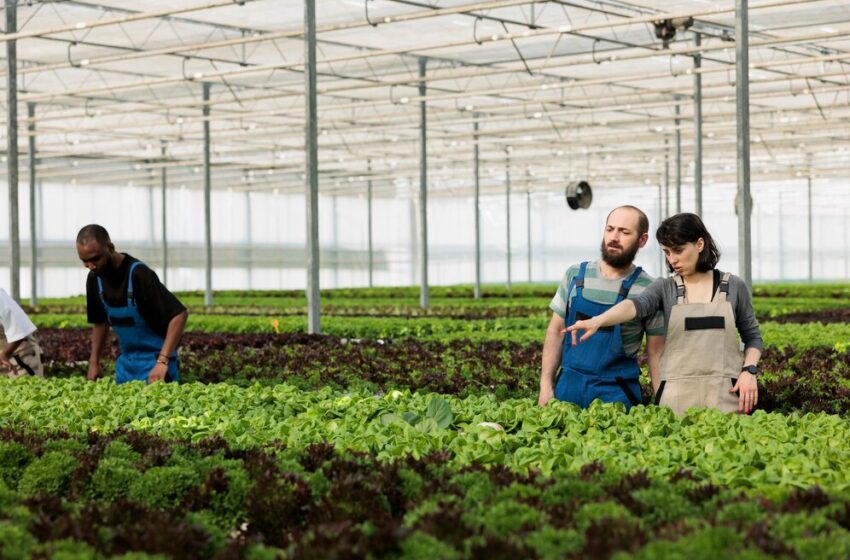
Biotechnology and Its Role in Sustainable Agricultural Practices
Biotechnology has emerged as a transformative force in modern agriculture, offering innovative solutions to enhance productivity, sustainability, and environmental stewardship. By harnessing the power of genetic engineering, microbial processes, and other biotechnological innovations, farmers and scientists are tackling some of the most pressing challenges in agriculture today. This blog explores the pivotal role of biotechnology in promoting sustainable agricultural practices, highlighting its benefits, applications, and future prospects.
Unlocking the Potential of Biotechnology in Agriculture
Biotechnology in agriculture involves the application of scientific and engineering principles to the processing of materials by biological agents to provide goods and services. Its role in agriculture is multi-faceted, offering solutions to increase crop yields, protect crops from pests and diseases, and enhance the nutritional value of foods.
Genetic Modification: The development of genetically modified organisms (GMOs) to resist pests, diseases, and environmental conditions.
Biofertilizers and Biopesticides: Utilizing microbial organisms to enhance plant growth and protect against pests without the harmful effects of chemical inputs.
Plant Tissue Culture: Propagating disease-free, high-yielding plants under controlled conditions to ensure plant health and productivity.
Sustainable Solutions Through Biotechnology
The integration of biotechnological innovations in agriculture presents a sustainable path forward, addressing the need for increased food production without compromising the health of our planet.
Enhanced Crop Resilience: Developing crop varieties with enhanced resistance to drought, salinity, and extreme temperatures, reducing the need for water and arable land.
Reduction in Chemical Use: By employing biopesticides and biofertilizers, biotechnology reduces the dependency on chemical fertilizers and pesticides, mitigating soil and water pollution.
Improved Crop Yields: Genetic modifications and microbial enhancements can lead to increased crop productivity, essential for feeding a growing global population.
Biotechnology’s Environmental Impact
Biotechnology holds the promise of reducing agriculture’s environmental footprint, contributing to a more sustainable and eco-friendly approach to farming.
Conservation of Biodiversity: By engineering crops that require fewer inputs and are suited to local conditions, biotechnology can help preserve natural habitats and biodiversity.
Carbon Footprint Reduction: Sustainable biotech practices can contribute to lower greenhouse gas emissions, through reduced deforestation, lower use of fossil fuel-based inputs, and enhanced carbon sequestration in soils.
Sustainable Soil Management: The use of biofertilizers promotes healthier soil microbiomes, enhancing soil fertility and structure, and preventing erosion.
Ethical and Societal Considerations
While biotechnology offers immense potential for sustainable agriculture, it also raises important ethical and societal questions that need to be addressed.
Biosafety and GMO Regulation: Ensuring that genetically modified crops are safe for human consumption and the environment is paramount, requiring stringent testing and regulatory oversight.
Access and Equity: There’s a need to ensure that the benefits of agricultural biotechnology are accessible to smallholder and resource-poor farmers, not just large agribusinesses.
Public Perception and Trust: Building public trust through transparency, education, and engagement is crucial in addressing concerns and misconceptions about biotechnological innovations in agriculture.
The Future of Biotechnology in Sustainable Agriculture
The future of biotechnology in agriculture is bright, with ongoing research and innovation paving the way for new solutions to global food security and sustainability challenges.
CRISPR and Gene Editing: Advanced gene-editing technologies like CRISPR-Cas9 offer precision, efficiency, and reduced costs in developing crops with desired traits.
Microbial Biotechnology: Exploring the plant microbiome for solutions to enhance crop growth, stress resistance, and nutrient uptake without genetic modification.
Synthetic Biology: The design and construction of new biological parts, devices, and systems for enhancing photosynthesis, nitrogen fixation, and other key processes in plants.
Conclusion
Biotechnology represents a cornerstone of sustainable agricultural development, offering innovative solutions to enhance food security, protect the environment, and support the livelihoods of farmers worldwide.
By addressing the ethical and societal implications of biotech advancements, and ensuring equitable access to these technologies, we can harness the full potential of biotechnology to meet the challenges of modern agriculture.
As we look to the future, continued investment in research, along with cross-sector collaboration, will be key to unlocking the transformative power of biotechnology for sustainable farming practices.















